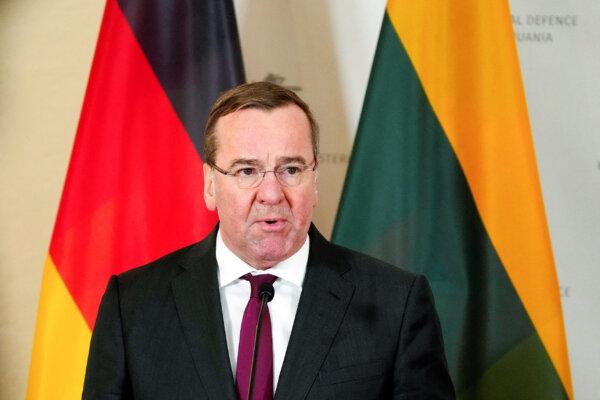Swedish Minister Raises Questions about Ship Movements coinciding with Baltic Sea Cable Damage
Despite the presence of the Chinese cargo vessel Yi Peng 3 near the damaged cables, no direct link has been established, and investigations are ongoing.
The movements of an as-yet-unnamed ship coincided with the timing and location of recent damage to communication cables in the Baltic Sea, a Swedish minister said on Nov. 20.
Two undersea fiber-optic cables in the Baltic Sea were damaged: one between Lithuania and Sweden was severed on Nov. 17, and another between Finland and Germany was cut on Nov. 18, less than 24 hours later.
The damage happened in Sweden’s exclusive economic zone. Swedish prosecutors started a preliminary investigation on Nov. 19 on suspicion of possible sabotage.
Swedish Minister for Civil Defense Carl-Oskar Bohlin said on Nov. 20 that the ship’s movements were recorded by the Swedish armed forces and coast guard.
The Swedish navy is helping police and prosecutors with the investigation, a naval spokesman said on Nov. 20.
Despite the presence of the Yi Peng 3 near the damaged cables, no direct link between the ship and the incidents has been established, and investigations are ongoing.
‘No One Believes That These Cables Were Cut Accidentally’
Later, Finnish state-controlled cybersecurity and telecoms company Cinia revealed that a separate 745-mile C-Lion1 cable connecting Helsinki to the German port of Rostock also stopped working, at about 2 a.m. GMT on Nov. 18.
On Nov. 19, German Defense Minister Boris Pistorius dismissed the likelihood of accidental damage caused by ship anchors or other routine maritime activities.
“No one believes that these cables were cut accidentally,” Pistorius said before a meeting of European Union defense ministers. “I also don’t want to believe in versions that these were ship anchors that accidentally caused the damage.
“So we have to state—without knowing in concrete terms who it came from—that this is a hybrid action. And we also have to assume—without already knowing it, obviously—that this is sabotage.”

German Defense Minister Boris Pistorius speaks during a news conference in Vilnius, Lithuania, on March 7, 2023. Ints Kalnins/Reuters
Kremlin: Absurd to Blame Russia
The ministers said that the fact “that such an incident immediately raises suspicions of intentional damage speaks volumes about the volatility of our times.”
“A thorough investigation is underway,” the statement reads. “Our European security is not only under threat from Russia‘s war of aggression against Ukraine, but also from hybrid warfare by malicious actors. Safeguarding our shared critical infrastructure is vital to our security and the resilience of our societies.”
Lithuania’s navy said on Nov. 19 that it had subsequently increased the surveillance of its waters.
Russia on Nov. 20 dismissed any suggestions that it had been involved.
Kremlin spokesman Dmitry Peskov told a news briefing, “It is quite absurd to continue to blame Russia for everything without any reason.”
The Epoch Times contacted the Swedish minister of civil defense and the Danish navy for comment but did not hear back by press time. The Epoch Times was unable to contact Ningbo Yipeng Shipping, the owner of the Yi Peng 3 vessel.
Reuters contributed to this report.





